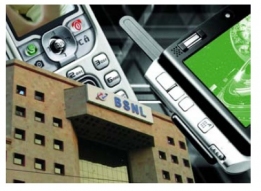
The delay in increasing network capacity has cost the state-owned telecom operator, Bharat Sanchar Nigam Limited (BSNL), dearly. Faced with an acute capacity crunch over the past few years, BSNL has lost several thousands of subscribers in different parts of the country. As of April 2008, the PSU had a capacity of 36 million GSM lines, most of which had been used up. Of the 5.5 million CDMA lines, only 1 million lines are free.
Not wanting to lose any more ground, in May 2008, BSNL awarded a $90 million GSM line expansion contract to Motorola. Under the contract, Motorola will provide GSM network equipment and network services support, that is, both hardware and software, to BSNL in the south zone. BSNL's existing network in the southern region uses 2G equipment supplied by Motorola. The addition of Motorola's best-of-breed second-generation GSM solutions will significantly expand the network's capacity.
The Motorola contract, however, would serve to meet only a fraction of BSNL's total requirement. In what is considered as the world's largest order for GSM lines, BSNL floated a tender for 93 million lines in May. The contract, estimated to be worth $10 billion, will be split into four parts – three 25 million line contracts for the north, south and west zones and one 18 million line contract for the east zone.
However, BSNL has set some stiff conditions for vendors who want to participate in the tender. Only those companies with a turnover of Rs 80 billion or above for the last two years, and with a successful track record of rolling out over 20 million GSM lines, will be permitted to bid. The stipulations imply that the contract will be restricted to global majors such as Ericsson, Nokia Siemens Networks, Motorola, Nortel, AlcatelLucent, Huawei and ZTE. Prior to awarding the contracts, BSNL will enter into legal agreements with the bidders, according to which the winners will have to provide spares, upgrades and services for the first seven years.
The company has also stipulated that no vendor will be awarded the contracts for more than two zones, hence restricting the maximum order for a single company to 50 million lines. Further, of the total 93 million lines, 21 million will be reserved for 3G services. With this, BSNL has added another condition that the bidders must provide proof of having set up 2-5 million 3G lines in a minimum of two countries. In a bid to infuse additional competition, BSNL has divided the tender into four components – 2G lines, 3G lines, infrastructure, and operating and business support systems. Vendors can bid for any of the four components, or for all the components.
The successful bidders will also have to give an undertaking that they will manufacture GSM EDGE radio access network equipment, which forms the core of a network, and not source it from other companies. "This is to ensure that companies do not outsource or buy the most critical network components. In the previous tenders, we discovered that some of the winners sourced cheap radio access products from China," says a BSNL executive.
The stipulations set for the 93 million line contract are, however, less stringent than the ones that accompanied BSNL's previous mega tender for 22.5 million lines. For example, the controversial condition that only profit-making companies can participate in the tender has been done away with. The clause was amongst the factors that led to the disqualification of Motorola from the previous tender, as the US-based networks major had declared losses in several quarters.
The new contract has a lot riding on it. It is an important part of BSNL's expansion drive, and should help the company, which has been steadily losing market share, to get back on the growth path. However, the company needs to tread carefully while selecting the vendors so as to avoid the controversies that had plagued the previous contract this time around.
Key telecom contracts/tenders (May-June 2008)